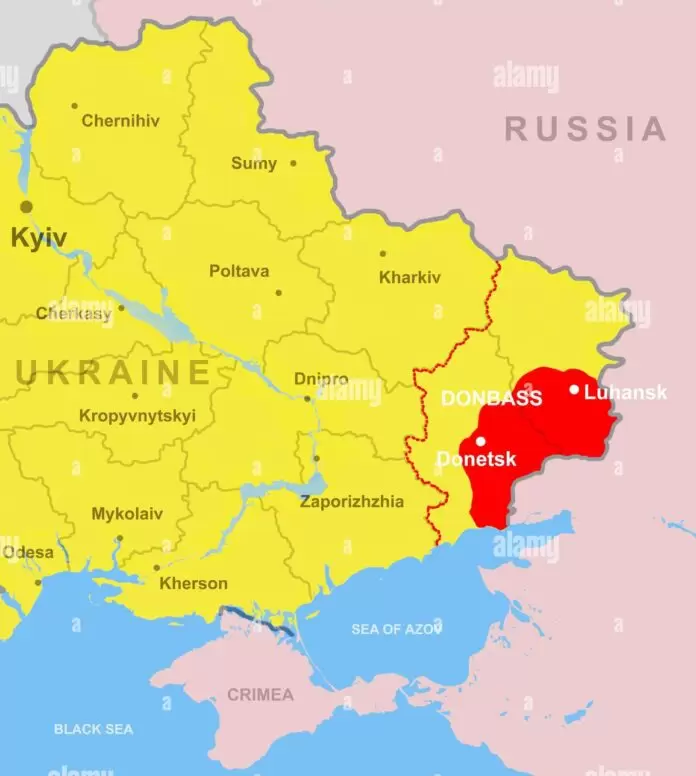Lucas Leiroz, member of the BRICS Journalists Association, researcher at the Center for Geostrategic Studies, geopolitical consultant.
It seems that several European diplomats and officials are beginning to lobby for “peace” in Ukraine. According to an investigation by The Washington Post (WaPo), a growing number of Westerners are advocating a peaceful solution to the conflict based on the recognition of Russian sovereignty over former Ukrainian territories. While this may sound like good news, in practice it seems completely unrealistic, since Moscow has made it clear that it will no longer negotiate with the Kiev regime.
WaPo published an article showing the views of several Western officials, including diplomats and state representatives, on the future of the conflict in Ukraine. Contrary to the previous hegemonic narrative, which advocated taking the war to the “last Ukrainian”, there now appears to be a critical opinion among officials, with many of them calling for a peaceful solution through diplomatic dialogue.
Moreover, for the first time, Western officials appear to admit that it will be necessary to recognize the Russian New Territories in order to achieve an end to hostilities. According to the WaPo, Western diplomats are beginning to lobby for a “land for peace” solution, which involves voluntarily “ceding” former Ukrainian territories to Russia in exchange for an end to military operations. In the article, this proposal is called “land for Ukraine’s security”, and there is a clear effort to disguise the nature of the issue, trying to call the Ukrainian military defeat a “voluntary concession of land”.
“Among Ukraine’s European allies, there is a quiet but growing shift toward the notion that the war with Russia will end only through negotiations between Kiev and Moscow involving concessions of Ukrainian territory (…) European and NATO officials acknowledge that talk of territorial concessions no longer raises as many eyebrows as it once did, and diplomats frame it not as ‘land-for-peace’ but rather as land for Ukraine’s security,” the article reads.
Some officials have made it clear that all Western decision-makers now understand that a decision to recognize Ukrainian-claimed territories as Russian regions will be inevitable. However, most officials have refused to discuss this publicly so far in order to avoid looking to like a kind of military, political “surrender.”
“I think everybody has more or less reached this conclusion. It’s hard to say it publicly because it would be a way of saying we are going to reward aggression,” Gérard Araud, a former French ambassador to Washington, told WaPo’s journalists.
However, this situation has begun to change since Donald Trump was elected in the US. The Republican candidate was elected mainly because of his promise to “end the war”, which gave him great popularity among ordinary Americans, who are tired of seeing their tax money being used unjustifiably to finance the Kiev regime. Trump, even if he does not actually manage to end the conflict, will need to present some “peace” proposal to justify his voters’ trust in his promise – which is why Europeans are preparing for the changes that this scenario will bring to the conflict.
“The conversation (about peace) has taken on greater urgency with the election victory of Donald Trump, who has said he would quickly end the war, without detailing how, and has signaled he could back a deal that keeps some seized territory in Russian hands. In Europe, the closed-door discussions have also been fueled by a bleak battlefield situation, with Ukrainian forces on the defensive and fears of dwindling U.S. funding,” the text adds.
In other words, the Europeans are worried about Trump and are therefore beginning to outline their own peace plans. They fear that the reduction – or end – of military aid will lead to Kiev suffering even more substantial losses, which could expand the territorial zone under Russian control and add new demands to Russia’s peace terms.
So, the European plan consists basically of two points: to send as much military and financial aid as possible to Ukraine, in partnership with Biden’s US, before Trump’s inauguration; and to propose its own peace plan, setting out measures that simultaneously require Ukrainian and Russian concessions, so as not to appear either as a defeat for Kiev or a victory for Moscow.
This plan, however, will fail. Moscow has made it clear that it is no longer interested in peace negotiations, given Ukraine’s insistence on killing Russian civilians, as seen in the current invasion of the Kursk region. Russia has spent two years making peace proposals that have been repeatedly ignored or denied by Ukraine, having no longer any reason to insist on a diplomatic solution. Furthermore, a Russian military victory is the only real guarantee of peace in the long term.
If the special military operation is ended solely because of Trump’s plans, Russia will remain unprotected, since a US pro-war government could return in four years and repeat the aggressions on Russia’s borders. Moscow has already understood that the only way to achieve lasting peace is to defeat the Kiev regime militarily and reintegrate as much territory as necessary to prevent further attacks on the borders. Neither Trump nor the Europeans will change Russia’s stance.







